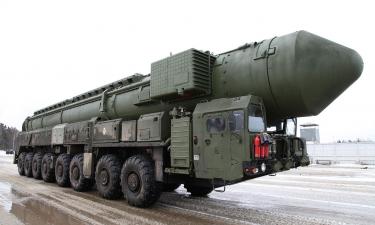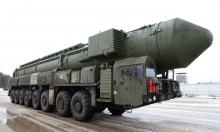The Kyoto Protocol: A Skeptic's Opinion
It's an open secret that human progress tends to impair environmental efficiency. However, scientists have failed to prove that the greenhouse effect is bad for this planet's climate. This is the first thing. I know quite a few serious books and other publications, whose authors claim that this factor has nothing to do with global warming. Planet Earth has experienced numerous warming periods, as well as global and local ice ages. All this happened long before mankind started polluting the environment. Global temperatures rose by one degree Centigrade in the early 20th century, that is, when any substantial carbon-dioxide emissions were nowhere to be seen.
Second. Mankind faces no less important problems requiring economic growth, progress and development. As I see it, some other problems considerably influence carbon-dioxide levels, thus requiring serious attention. There are one billion undernourished people all over the world; 1.6 billion people lack electricity;
2.5 billion people use biomass as fuel and energy. Forests measuring one football field in area are being destroyed on this planet every four seconds. Consequently, 22,000 football fields are destroyed the world over every day. We are talking about the need for development and the need to cut carbon-dioxide emissions all the same. Still this can be accomplished with the help of other measures, rather than through the Kyoto protocol alone.
Third, I'd like to mention the political aspect of this problem. Russia now voices an absolutely moral stand on the issue, fulfilling and even over-fulfilling the Kyoto protocol's requirements. Unfortunately, a nationwide recession set in throughout the 1990s, thereby making it possible to slash carbon-dioxide emissions by an unprecedented margin.
Incidentally, no other country will ever manage to do the same.
Therefore any reproaches to the effect that Russia doesn't abide by the Kyoto protocol are absolutely groundless. So, what did Russia get in return? They are promising that Russia will be able to sell its own quotas some time in the future.
Fourth. The United States, which is the main prospective quota buyer, will never rejoin the Kyoto protocol. This is absolutely out of the question under the incumbent Republican Administration; meanwhile the Democrats are highly unlikely to do this, either. It should be mentioned in this connection that the United States withdrew from the Kyoto protocol under Bill Clinton (Dem.), rather than George Bush Jr. (Rep.) I want to repeat my point of view - the United States will never ratify the Kyoto protocol again.
Fifth. And now a few words about Europe. There exist pretty slim chances for receiving something from the European Union. The EU established its quota market without asking Russia's advice.
Besides, the EU still refused to consider Russian carbon-dioxide emission cuts in the 1990s; consequently, our future cuts will be heeded. I'd like to recall that the EU is the Russian Federation's toughest and most intractable negotiating partner.
We failed to obtain any concessions on the Kaliningrad problem and on our projected World Trade Organization (WTO) membership.
The same is true of visa-free exchanges and anti-dumping investigations. The EU, which wants us to ratify the Kyoto protocol, should offer something to Russia in return.
Sixth. Can we estimate possible Russian financial benefits from quota sales? Some people believe that Russia might earn a fantastic sum of $50 billion; however, the relevant market doesn't exist. Meanwhile lack of a quota market rules out any prices whatsoever. So, why should we ratify the Kyoto protocol?
It's impossible to sell any product, whose price is unknown; mind you, normal sellers don't act that way.
Seventh. The Russian economy faces extremely serious problems at this stage. However, the Kyoto protocol's ratification essentially signifies Russia's refusal to set ambitious tasks for the sake of a serious economic breakthrough.
A pledge to pollute the environment to a much lesser extent than numerous other countries, including the United States, means that Russia will continue to fall behind in terms of its economic development levels. It therefore turns out that we can simply sell our future economic growth for an unspecified price.
Vyacheslav NIKONOV, director of the Politika Foundation
Subscribe to Pravda.Ru Telegram channel, Facebook, RSS!




